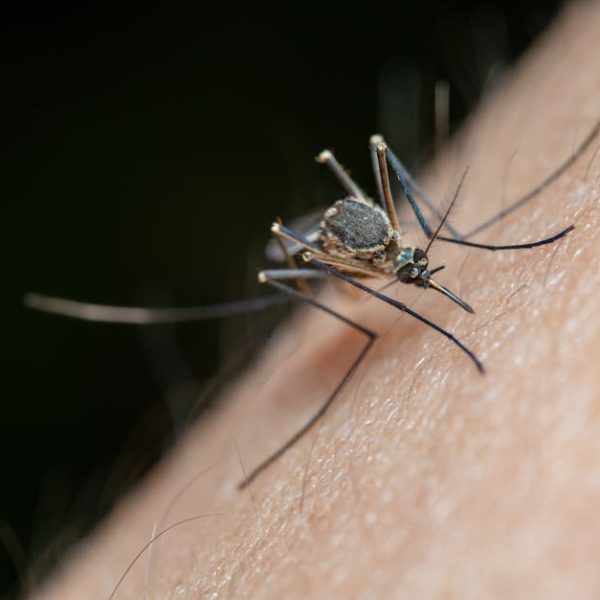When the quaint frolicking of squirrels becomes a full-blown invasion, it’s time to take preventive measures. Keeping squirrels away from your yard doesn’t mean forfeiting your furry friends completely. Instead, it involves striking a balance to ensure they don’t wreak havoc on your prized garden or invade your home’s cozy spaces. In this article, we provide seven do-it-yourself tips that serve as squirrel repellents. Let’s dive in.
Understanding Squirrel Attraction Factors
Squirrels often see our yards as buffet tables, laden with irresistible treats like bird feeders filled with seeds, fruit and nut trees, lush vegetable gardens, or accessible trash bins. Your yard also offers inviting shelter options such as tall trees, dense bushes, and concealed nooks perfect for burrowing.
Common Elements That Attract Squirrels:
- Open bird feeders
- Fruit and nut trees
- Unsecured trash bins
- Untidy vegetable gardens
- Natural shelters (foliage and burrowing sites)
Best Practice: Regularly clean your yard, secure trash, and consider squirrel-proof bird feeders. Maintain your garden, harvest ripe fruits and vegetables promptly, and limit available shelters by triming overgrown foliage.
Harness the Power of Scent Repellents
You can use squirrels’ keen sense of smell against them by deploying DIY scent repellents. Household ingredients such as vinegar, peppermint oil, and cayenne pepper can create a scent barrier that deters these critters.
Pro-Tips:
- Soak rags in vinegar and position them around the yard – squirrels detest its acrid smell.
- Blend peppermint oil with water in a spray bottle and mist plants and other areas, refreshing every few days.
- Sprinkle cayenne pepper around plants and on birdseed; it’s harmless to birds but squirrels find it very unappetizing.
Comparison:
| Repellent | Pros | Cons |
|---|---|---|
| Vinegar | Easy to apply, common household item | Smell dissipates quickly, requires frequent application |
| Peppermint oil | Natural, safe for most plants | Can be expensive, requires frequent reapplication |
| Cayenne pepper | Easy to apply, very effective | Requires frequent application, could potentially irritate pets |
Deploy Visual and Auditory Deterrents
Squirrels are skittish. Visual and auditory deterrents, including shiny reflective objects, wind chimes, or even ultrasonic devices, can startle and deter them.
List of Deterrents:
- Reflective pinwheels or discs
- Wind chimes or bells
- Ultrasonic devices
Checklist:
- Securely install visual deterrents in areas frequently visited by squirrels.
- Set up auditory deterrents in quiet, squirrel-frequented zones.
- Regularly check and adjust the placement of deterrents to maximize their effectiveness.
Your first steps to a squirrel-free yard are understanding why it’s an attraction, utilizing scent repellents, and deploying visual and auditory deterrents. Up next, we look at natural predators, physical barriers, repellant plants, and when to consider professional help.
Utilize Natural Predators to Your Advantage
Squirrels are always on the lookout for potential predators. The presence of a dog or cat in your yard, or even a decoy of a predator bird, can serve as a deterrent.
Best Practice: If you have a pet dog or cat, allow them supervised outdoor time to serve as a physical deterrent. If not, consider predator bird decoys, strategically placed to seem as if they’re watching over your yard.
Pro-Tips:
- For decoys, change their positions once every few days so squirrels don’t get habituated to them.
- Be sure your pets are safe from potential squirrel-borne diseases—consider regular health check-ups and talking to your vet about preventive measures.
Adopting Physical Barriers and Traps
Physical barriers and traps can help restrict squirrels from accessing certain areas. Fencing, mesh covers, and squirrel-proof bird feeders may be of help. Humane traps which catch and release squirrels are also an effective solution, letting you relocate the squirrels away from your yard.
Versus:
| Physical Barriers | HUMANE Traps | |
|---|---|---|
| Effectiveness | Effective in protecting specific areas but can’t deter squirrels entirely | Very effective in capturing individual squirrels |
| Drawbacks | Can be expensive, some may alter the aesthetics of your yard | Requires regular monitoring, responsible release is a must |
Checklist Hints:
- For barriers, secure the important areas first, like your vegetable garden or bird feeder.
- Regularly inspect and enhance barriers—the imaginative squirrels will always explore ways to bypass them.
- For humane traps, place them near the areas frequently visited by squirrels and check daily. Always relocate squirrels responsibly, far away from your home.
Planting Squirrel-Repellant Flora
Certain plants naturally repel squirrels. Daffodils, hyacinths, and alliums are just a few examples of flora that squirrels find unappetizing.
List of Squirrel-Repellant Plants:
- Daffodils
- Hyacinths
- Alliums
- Fritillaries
Best practice: Plant these in areas you’ve noticed are popular with the squirrels—such as close to bird feeders, or as a border for your vegetable garden. Over time, these plants would make your yard less appealing to them.
Professional Assistance for Persistent Squirrel Infestations
Persistent squirrel intruders can sometimes be too resilient for DIY measures. In such cases, professional help can provide efficient and lasting solutions.
Pro-Tips:
- Look for pest control services with a specific focus and good reviews for wildlife.
- Always prefer services that use eco-friendly and humane methods.
- Discuss the problem thoroughly with the professional to understand their proposed strategy and step-by-step process.
Comparison:
| DIY Approaches | Professional Services | |
|---|---|---|
| Cost | Usually budget-friendly, but may incur recurring costs | Can be expensive but usually provides a more permanent solution |
| Effectiveness | Effectiveness varies, results may not be immediate | Very effective, especially for severe or stubborn infestations |
In the quest for a squirrel-free yard, remember, the objective is to persuade the squirrels to move on, not to harm them. Consistent actions, patience, and a bit of wiliness can help you reclaim your yard, while still enjoying the occasional playful leaps of a passing squirrel.
Key Takeaway:
- Understanding what attracts squirrels to your yard is the first step towards deterrent measures. Food sources and shelter options are the most common attraction factors.
- Squirrels have a sensitive sense of smell, and DIY scent repellents like vinegar, peppermint oil, and cayenne pepper can keep them away.
- Visual and auditory deterrents can also help scare and discourage squirrels from your yard.
- The presence of natural predators is an effective deterrent. Attracting these predators or using decoys can help maintain a squirrel-free yard.
- Physical barriers and traps can be employed for persistent squirrels. Options include fencing, mesh covers, and squirrel-proof feeders.
- Certain plants naturally repel squirrels and can be used as a deterrent.
- Professional help might be required for stubborn squirrel infestations. Pest control services provide efficient and lasting solutions.
Managing squirrels in the yard doesn’t have to be a stressful task. With these DIY tips, we can coexist peacefully with squirrels, without compromising the harmony of our space. The key is consistency, patience and the use of humane methods.
FAQs
Q: What can be done if squirrels keep chewing through the bird feeder?
A: Consider investing in a squirrel-proof bird feeder. These have anti-squirrel mechanisms that prevent the squirrels from accessing the bird food.
Q: Do ultrasonic repellents harm the squirrels or any other wildlife?
A: Ultrasonic repellents are designed to scare off pests without causing them any harm. However, it’s important to consider the sensitivity of other wildlife in your area before using them.
Q: Are there any risks to my pets from using scent repellents like cayenne pepper?
A: Cayenne pepper can potentially irritate pets, especially if they ingest it. Always be aware of where you are applying these deterrents if pets are present.
Q: What types of professional services are available for squirrel control?
A: Professionals offer a variety of services from trapping and relocation to implementing physical barriers or deterrent systems.
Q: How often should scent repellents be reapplied?
A: This depends on the type of repellent used and environmental factors like rain. In general, reapplication may be necessary every few days or after rainfall.
Feel free to share this article, and explore more informative posts on our website. We’re here to help make your home and yard comfortable, safe, and squirrel-free.






